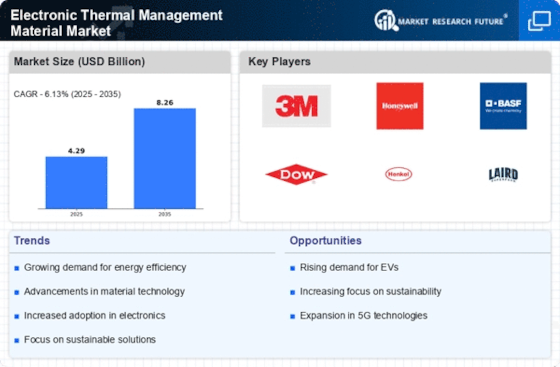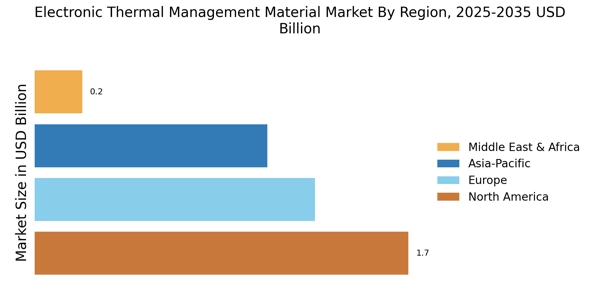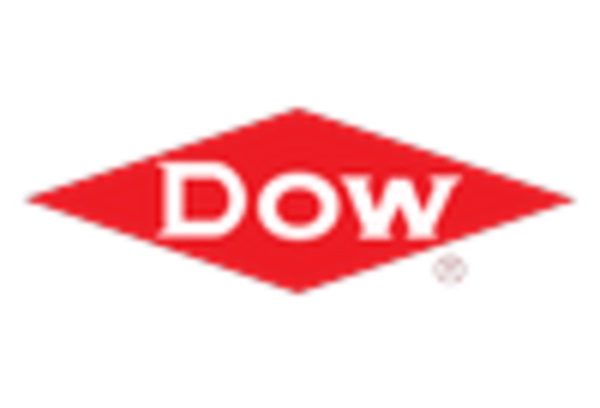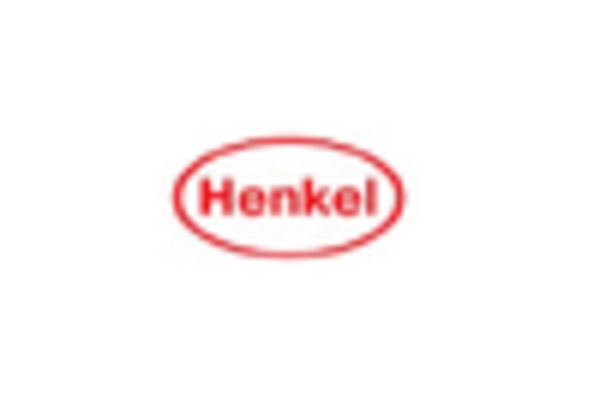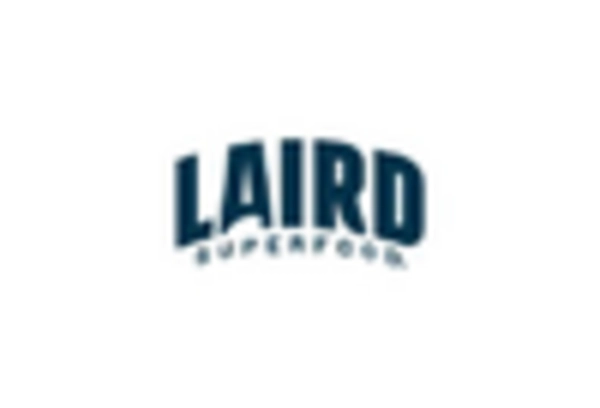Advancements in Electric Vehicles
The Electronic Thermal Management Material Market is significantly influenced by the advancements in electric vehicles (EVs). As the automotive sector shifts towards electrification, the demand for efficient thermal management solutions becomes critical. In 2025, the electric vehicle market is expected to witness a growth rate exceeding 20%, driven by increasing environmental regulations and consumer preferences for sustainable transportation. This transition necessitates the use of advanced thermal materials to manage battery temperatures and ensure optimal performance. Consequently, manufacturers are investing in research and development to create innovative thermal management solutions tailored for the unique requirements of electric vehicles, thereby expanding the Electronic Thermal Management Material Market.
Growth in Renewable Energy Sector
The Electronic Thermal Management Material Market is poised for growth due to the expansion of the renewable energy sector. As the world increasingly shifts towards sustainable energy sources, the demand for efficient thermal management solutions in solar panels and wind turbines rises. In 2025, the renewable energy market is projected to grow at a compound annual growth rate of around 8%, creating opportunities for thermal management materials that can withstand high temperatures and environmental stressors. This growth is likely to drive innovation in the Electronic Thermal Management Material Market, as manufacturers seek to develop materials that enhance the efficiency and durability of renewable energy systems.
Increased Focus on Energy Efficiency
The Electronic Thermal Management Material Market is witnessing a heightened focus on energy efficiency across various sectors. As industries strive to reduce energy consumption and minimize environmental impact, the demand for effective thermal management solutions rises. In 2025, energy efficiency initiatives are expected to gain momentum, with many organizations adopting stringent regulations to optimize energy use. This trend is likely to drive the demand for advanced thermal management materials that enhance the energy efficiency of electronic devices. Manufacturers are responding by innovating and developing materials that not only manage heat effectively but also contribute to overall energy savings, thereby propelling the growth of the Electronic Thermal Management Material Market.
Rising Demand for Consumer Electronics
The Electronic Thermal Management Material Market is experiencing a surge in demand driven by the increasing consumption of consumer electronics. As devices such as smartphones, tablets, and laptops become more prevalent, the need for effective thermal management solutions intensifies. In 2025, the consumer electronics sector is projected to grow at a compound annual growth rate of approximately 6.5%, necessitating advanced thermal materials to ensure device performance and longevity. This growth is likely to propel the demand for materials that can efficiently dissipate heat, thereby enhancing the reliability of electronic devices. Consequently, manufacturers are focusing on developing innovative thermal management materials that cater to the evolving needs of the consumer electronics market.
Miniaturization of Electronic Components
The Electronic Thermal Management Material Market is being shaped by the trend of miniaturization in electronic components. As devices become smaller and more compact, the heat generated within these components increases, necessitating advanced thermal management solutions. In 2025, the miniaturization trend is expected to continue, with the market for compact electronic devices projected to grow significantly. This trend creates a pressing need for innovative thermal materials that can effectively manage heat in limited spaces. Manufacturers are likely to focus on developing high-performance thermal management materials that cater to the unique challenges posed by miniaturized electronic components, thereby driving growth in the Electronic Thermal Management Material Market.


